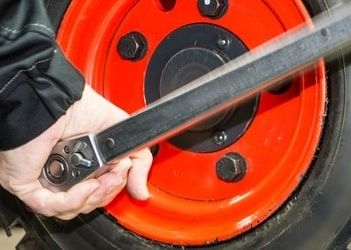
How Often Should a Forklift Be Serviced, and Why?
Forklifts are hard-working machines that carry very large loads continuously over time. They’re put under significant mechanical stress, and most forklift maintenance is based on simply fixing the natural ongoing effects of this work.
Any defect in a forklift can lead to major, expensive problems, so prevention is always a lot cheaper than cure.
There’s a very practical business side to forklift repairs and maintenance:
- Vehicle defects can cause serious safety issues, including fatalities and very severe injuries. In OHS terms, defective forklifts are accidents waiting to happen. Forklift servicing is really a type of risk management, as much as just plain common sense in business operational terms.
- Breakdowns on the job can cause a lot of downtime and added costs, not to mention the disruption to work and even contract delivery obligations. There’s also a risk of damage to goods, another consideration.
- Any defect, if left un-serviced, can become a lot worse, and a lot more expensive, very quickly. Forklifts are like cars; one problem creates more problems, and the net result can be a major repair bill.
- In a worst case scenario, a forklift may become unserviceable and have to be replaced, with significant costs in obtaining a replacement forklift.
Best Practice Forklift Servicing
The good news is that all of these problems are easily avoidable. This is the “strictly best practice” way to manage forklift maintenance:
- Operator training – All operators should be up to date on OHS practices, and aware of the need to report problems immediately. Experienced, well-trained operators and daily in-house maintenance are also excellent onsite assets for spotting possible problems quickly.
- Management oversight of reports of defects – This is to make sure that any defects are managed promptly, and that management is aware of possible issues ASAP. The reporting system also prevents “surprises”, and allows time for alternative arrangements to be made to keep workflow going on schedule.
- A good forklift maintenance schedule should be put in place and rigorously applied – This is the no-fuss, do things properly approach which saves a fortune over time. Well maintained forklifts are usually trouble-free.
- Regular maintenance should be done every six months – This is a lot cheaper than it might seem – A well-maintained forklift usually has very few problems, and usually there’s only minor work, if any, required. It’s also the surest way of preventing any new problems escalating in to expensive issues.
- A hotline to your forklift service providers – This means expertise on standby when you need it, particularly with the more advanced specialised modern forklifts, where “misunderstandings” with new equipment can be expensive. It’s also a quick way of getting service when required.
We hope these tips have been useful. If you’re looking for forklift services and repairs in Sydney, you can always call us at Aussie Forklift Repairs on (02) 9679 8992 or visit our website, and leave us a message.